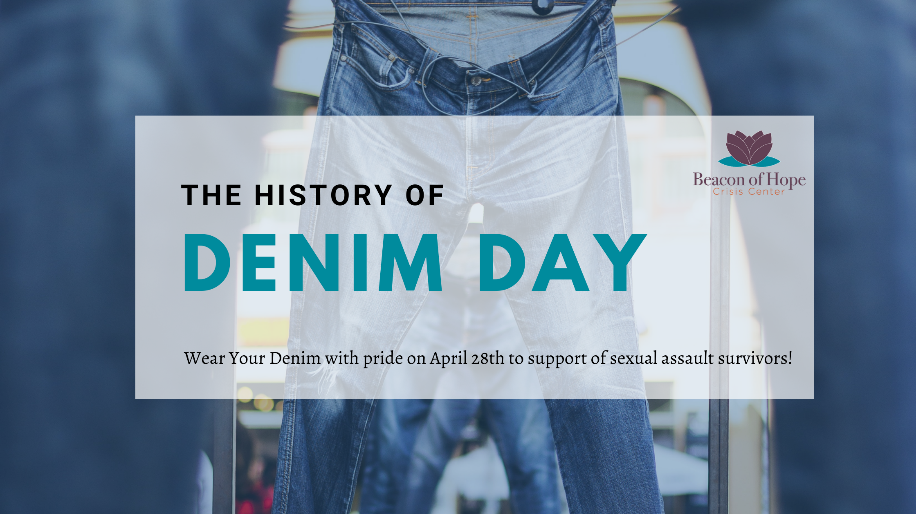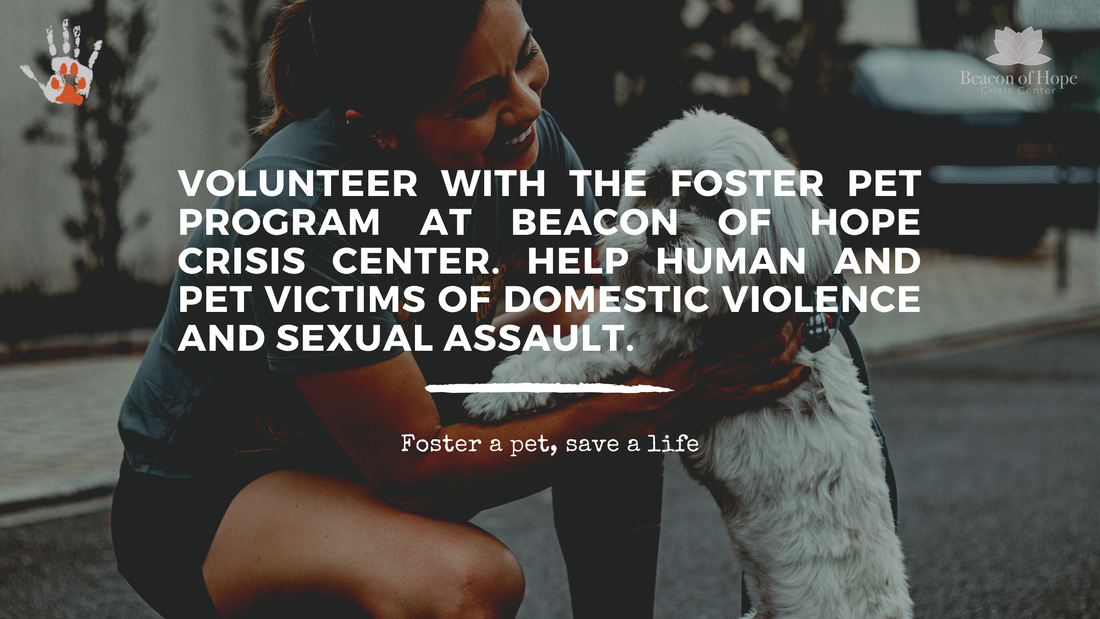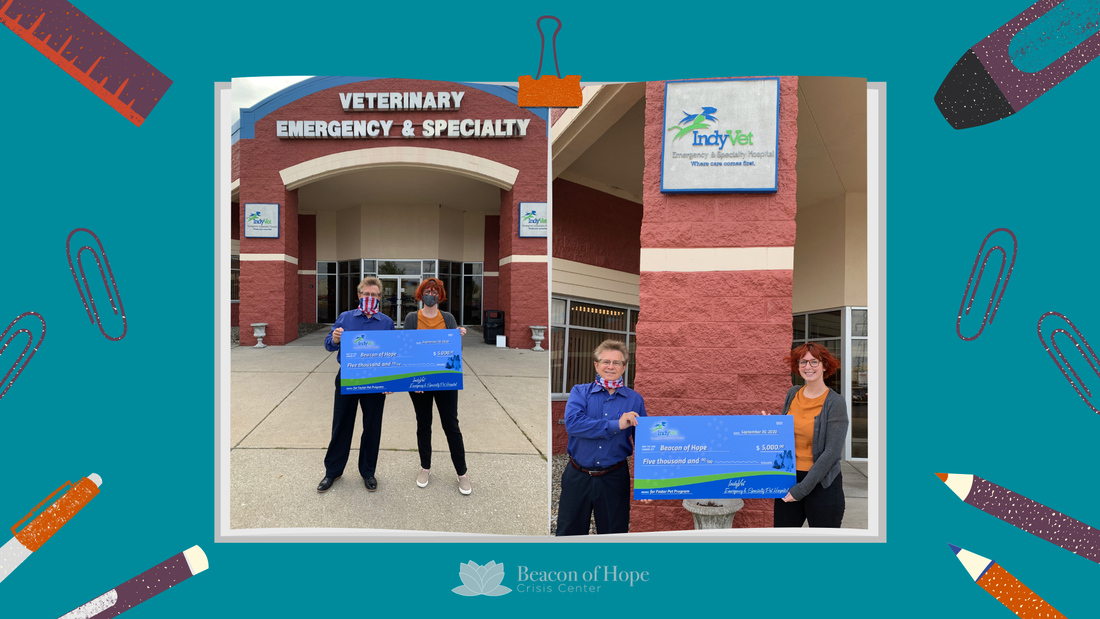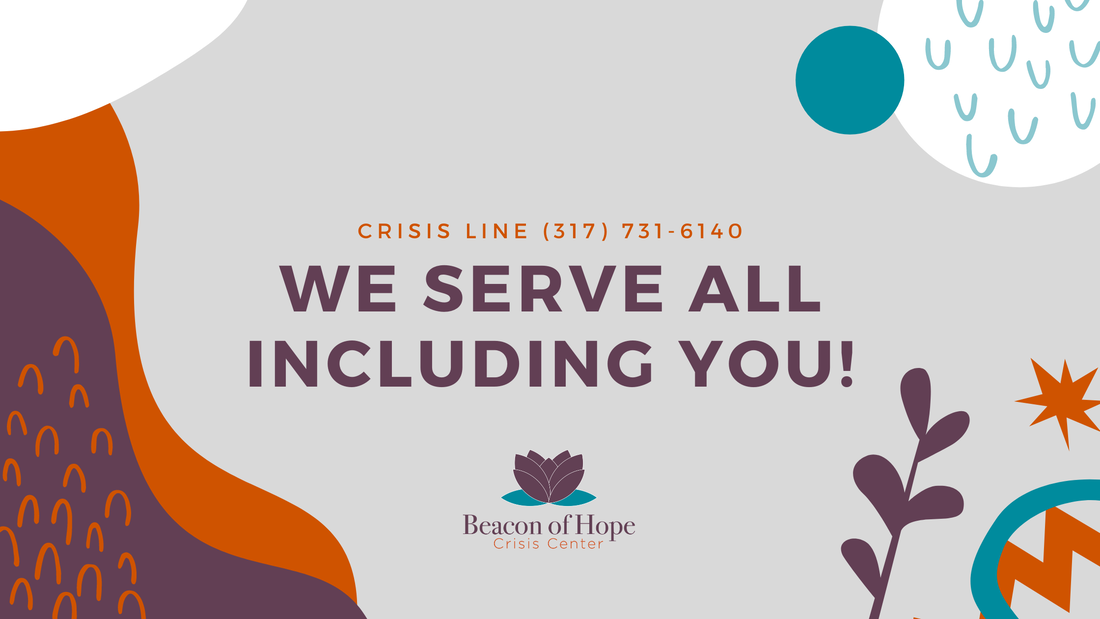|
We want to give a special shoutout to Futuro Indy, a local pizzeria that gave us a wonderful donation of over $1400. We were pleasantly surprised to receive this amazing news, and are incredibly thankful for this community support. Thank you to Futuro Indy and everyone that came out to show survivors they have allies. Donors really make all the difference in making sure the needs of survivor's are met. Their support means that the survivors we serve can continue to utilize our free services and life changing resources. Thanks again Futuro for your donation! #SupportSurvivors
By: Sandra Ziebold
From the initial moment she was introduced her sweet spirit was evident and to see her grow during her time with us was a joy. Her choice to remain involved after her internship ended was such a delight to us. Kelly was easy to talk to, intelligent, and creative. She was so sweet, and we cannot help but mention her incredible style. Kelly had a knack for balancing a professional and edgy wardrobe in the office. Every time we observed her work, she was kind and empathetic. We saw her grow in confidence as she talked with more survivors, provided resources, and helped ease their worries. She was also there to help train new interns and assist our Victim Advocates regardless of the request. This meant, they were able to get to know her better as well. From addressing client needs to gathering donations from the storage unit, Kelly was there to help. Kelly was with us as we transitioned to remote work due to COVID-19. She volunteered to continue helping our team as we faced challenges unlike any other. Her dedication to help survivors never wavered. Our team always looked forward to working with her and knew she was someone that could be relied on. With changes happening quickly, we never heard a complaint or frustration. Kelly was patient and wanted to continue serving others during this time. It is important to mention this was around the same time she was graduating and had plenty of her own needs to focus on. Kelly graduated in 2020 from IUPUI with a bachelor’s degree in Social Work. She committed to an internship her senior year and ended as a long-term volunteer. She had a giving heart, and we are so incredibly grateful to have known her and to have our amazing memories of her laughing, carefree, full of so much spirit, passion, and spunk. Kelly was not only actively involved with her internship at Beacon of Hope Crisis Center, but she was also passionate about helping people in the community in other ways. She would connect us with the women’s center on her campus regularly. When we received donations of infant formula beyond what our clients could utilize, she offered to take those items to the women’s center. She was always looking for ways to solve problems and was willing to show up to make things happen. This action-oriented mindset helped others feel motivated. Kelly was more than a volunteer peer to our team; she was a friend. Here are just a few memorable thoughts and moments shared by some of our employees. I am now an employee and was an Intern at the same time as Kelly and on this day that comes to mind, our supervisor asked us to run to the storage unit to gather some things for the agency. Kelly drove, playing me all her favorite songs (none of which I knew), and we laughed the whole 15-minute car ride. Once we arrived at the storage unit, it took us way too long to figure out how to get in the unit, not only that, but when we finally got inside, we both kept getting lost and laughing hysterically at the silliness of this simple task we were asked to do. This memory sticks out to me, because it was the first time, I really got to see the silly, caring, but fun side of Kelly. The work we did at the agency required seriousness and professionalism, both of which Kelly did well, so when we got a minute to step away Kelly showed me her other side. That day forward we made the most of our intern days together, helping each other on tough tasks, checking in on the emotional state of one another, and even helping each other figure out life issues we faced. There was never a day I could not count on Kelly to be there, never a time when I needed extra help that Kelly did not step up, and never a moment we did not make the most of. Kelly had no idea the impact she made on me as a person, her passion is what sparked my interest the most in the social work world. Thank you for that Kelly. When we went virtual, we stayed in touch, even when Kelly’s internship ended, we stayed in touch. Kelly made everyone around her feel lighter. She brought so much happiness, soul, passion, and excitement to every day. Kelly was, and will remain, an amazing friend, sister, and daughter. Kelly taught me so much. She was outstanding and really made something of herself. Kelly left an impression on every individual she encountered. I have no doubt in my mind that Kelly would have done extraordinary things. I am deeply saddened that she is gone. Thank you, Kelly, for your friendship. Thank you for your photography. Thank you for being you. I was a daytime advocate while Kelly was an intern at our agency and during the long period of time that she was with us, we grew close. During our lunch breaks, we would sit often and just talk about anything and everything. She gave great advice and genuinely was a person that you could easily talk to about anything and trust. The work we do is extremely hard and whenever I was having a bad day, Kelly would always notice and come into my office, bring me a snack or a cup of coffee and just talk to me about what was going on. You could rely on Kelly not only to accomplish her tasks as an intern, but also as a friend. She was always willing to help our clients or those she worked with and was very hardworking. She was constantly interested in shadowing appointments and helping our clients on a day-to-day basis. Kelly was a passionate and kind person who will truly be missed. No words can describe the impact Kelly had on us here at Beacon of Hope Crisis Center and the survivors we serve. She was a friendly face around the office and a caring person answering the call when victims reached out. We cannot say enough to acknowledge the mark she left. Thank you for showing us your light, you are forever in our hearts. Thank you to all who have donated to Beacon of Hope Crisis Center in Kelly’s honor. Her parents and siblings will be informed of your gift to our agency in her memory. By: Cheyenne Taylor Women across the world came together after the Italian Supreme Court overturned a rape case in 1992. This case revolved around an 18-year-old girl that was raped by her driving instructor. He was prosecuted and arrested for the crime but appealed his sentence, claiming that they had consensual sex. The Italian supreme court appealed his case, saying that the victim’s jeans were too tight for the rapist to have removed the jeans by himself. So, they argued that she would have had to help her rapist take her pants off, therefore making the act consensual.
Angered by this judgment, Italian women protested by wearing denim jeans and sitting on the steps of the Italian Supreme Court building. Images of these courageous women spread, and the news of the case shocked people across the globe. In 1999, the first American Denim Day was held in LA. Since then, each year, people worldwide wear denim to stand in solidarity with victims of sexual assault and speak out about the harmful effects of victim-blaming, which often results in more pain and suffering for sexual assault victims. Our agency encourages everyone who supports survivors of sexual assault to wear denim this year on #DenimDay in honor of all survivors. Help is Available:
#WeSupportSurvivors #WeServeAll #WeBelieveYou #SAAM By: Cheyenne Taylor Robert Ingersoll, an American lawyer and writer, once said, “We rise by lifting others.” Today, we want to discuss the ways we can help uplift survivors of sexual assault. We can start by changing the way society speaks about survivors. Common myths about sexual assault are harmful to survivors and can prevent them from getting the help and justice they deserve. These myths include beliefs that survivors “got what they deserved” or that they were “asking for it.” These thoughts are communicated through questions like, “What were they wearing,” “What were they doing,” or “Why did they drink so much?”
The truth is these types of questions focus on the wrong person. When a stabbing occurs, we never turn to the stabbing victim and question what they were wearing to make themselves more at risk of getting stabbed. We know that it is not our place to question survivors, and there is no justification for causing this harm. However, when speaking about sexual assault survivors, we assume they are lying – even though less than 2% of people are reported to have lied about sexual assault1. We also focus on questioning the survivors instead of questioning those who sexually assault people. Survivors are shamed so much that many do not report their perpetrators and many perpetrators go free. In fact, only 5 out of every 1,000 perpetrators will end up in prison2. Survivors feel so much shame for being sexually assaulted, but we can work together to take away those feelings of guilt. Instead of questioning survivors about their actions and what they did to “deserve” trauma that nobody deserves, we can show support to these survivors. We can offer support by using phrases like “It took a lot of courage to speak about this,” “It’s not your fault,” or “You are not alone. I am here to help.” We can also continue to check-in with them and give them the time to grieve and heal from their experiences. We should also validate their decisions. Listen to them without judgment and encourage them to make the best decision for themselves and their health. Additionally, we can suggest local resources to help the survivor. Beacon of Hope Crisis Center offers free services like protective order filing, safety planning, employment and financial assistance, emotional support, referrals for housing, jobs, and much more. Our victim advocates are here to support you. Speak with a victim advocate by calling our confidential crisis line at (317) 731-6140. If you are in immediate danger, please call 9-1-1. By: Cheyenne Taylor The link between pet abuse and domestic violence is pervasive; in fact, pet abuse is one of four indicators of domestic violence within a household. We recognize that pets are the silent witnesses and secondary victims in violent homes. Animals are often threatened, abused, and killed in some cases.
Many survivors utilize our Foster Pet Program in order to guarantee the safety of their beloved pets. Survivors connect with our Director of Primary Prevention to complete an intake. Then, those who qualify will be paired with one of our Foster Pet Caregivers. If placement is available, our Director of Primary Prevention will arrange the details to safely deliver the pet(s) to the caregiver's home. They also stay in contact with the caregiver to give updates on the pet’s progress to the survivor. Our Foster Pet Caregivers are the heart of this program. If these wonderful people weren’t willing to open their homes and their hearts, survivors would have to stress over the safety of their pets or even give them away to protect them. In extreme cases, survivors might stay in a violent home to try to protect their pet(s) This program and our caregivers ensure that these survivors do not have to experience the additional trauma of pet loss. Thank you to everyone that has shown support to survivors at Beacon of Hope Crisis Center. How can you help?
By: Kristen Board As we approach a year of being in the pandemic, many people are feeling exhausted and drained. Many people cling to the comfort of their precious pets when going through hard times. Others find it rewarding to reach out and help other people in times of despair. The Foster Pet Program at Beacon of Hope Crisis Center provides several opportunities for people to volunteer their time to help people and pets. The work of our agency and Foster Pet Program is more crucial than ever at this time because domestic violence and sexual assault have only increased within our community during the pandemic.
Many shelters in Indiana do not accept pets, so victims of domestic violence and sexual assault are left to decide whether to leave their beloved pet behind with their abuser or permanently rehome their pet while they find shelter. Statistics show that up to 40% of victims do not leave their abusive situations for fear of what will happen to their beloved pet. 71% of women in DV shelters have reported that their abuser has threatened, harmed, or killed their pet. Our program provides a temporary home to pet victims until the owner can secure safe housing and be reunited with their beloved pet. Our Foster Pet Program would not exist without the time and dedication of our volunteer foster caregivers, donors, and program volunteers. We are so grateful for everyone who has supported our program and helped us to save the lives of countless human and pet victims of domestic violence and sexual assault. We are actively recruiting for volunteer foster pet caregivers and other program volunteers for our Foster Pet Program. If you want to learn more about the Link between pet abuse and domestic violence, how our Foster Pet Program works, or the several ways to get involved by volunteering with our program, consider attending one of our virtual information sessions coming up in March. Register for one of our information sessions here: Tuesday, March 2nd 12pm-1pm Tuesday March 2nd 4pm-5pm In January 2016, our current Chief Executive Officer / Executive Director (CEO/ED), Sandra Ziebold, accepted the role of CEO/ED at Beacon of Hope Crisis Center. In these last five years, she has guided us and encouraged us to grow as an agency as well as individuals. Today, we want to wish her a Happy Five Year’s at the agency. In her first year as CEO/ED, Sandy changed the agency name, making it more inclusive to all victims of domestic violence and sexual assault, no matter age, ethnicity, religious beliefs, or gender preference. She also relocated the agency to a more central location to better serve all victims within Central Indiana, including under served communities.
She has curated a team of exceptional leaders, victim advocates, contractors, interns, volunteers, and collaborative partnerships. Our agency has not only grown in size of employees and volunteers, but we have served more victims under her leadership. With her compassion, dedication, and leadership, we have been able to serve over 1200 victims annually over the past few years. She helped lead and worked with the team in serving 1271 victims in 2020 despite an ongoing pandemic. In addition to increasing the number of victims served, we have been able to form strong collaborative partnerships with numerous local law enforcement agencies, local hospitals, veterinary agencies, rescue shelters, community centers, other domestic violence and sexual assault agencies/shelters, etc., while under her leadership. Reaching victims and ensuring that they are being served, has not only been a priority, but so has ensuring that all victims including pet victims are receiving adequate and timely services at BOHCC. In 2017, she played a critical role in presenting to the Indiana State Senate and advocating for pets to be eligible to be added as protected parties on protective orders. That was approved by the Indiana State Senate and victims can now add their pet/s as protective parties on their protective orders. In 2018, she expanded accessibility by ensuring that we can serve anyone despite if they are non-English speaking, deaf or have any other accessibility needs. In 2019, she served as an Expert Witness for the State in a Sentencing Hearing and the result was the defendant receiving the maximum sentence for Domestic Violence Animal Cruelty a Level 6 Felony. In 2020, she served as an Expert Witness for the State in an Attempted Murder Trial and the jury found the defendant guilty of domestic battery, strangulation, intimidation, and disorderly conduct. We recognize that the success of this agency is amplified thanks to her dedication, compassion, understanding, commitment, impressive business decisions and advice. Even with the unexpected pandemic, Sandy has prioritized the health of the employees and the clients we serve. She has always done thorough research and made decisions with careful deliberation to ensure that everyone is cared for in the best way possible. We, as an agency, are so grateful for Sandy and her continued support and advocacy for victims as well as all of us at BOHCC. Thank you, Sandy for an incredible five years leading the BOHCC team. We look forward to having many more with you! Happy Work Anniversary! By Sandra K. Ziebold “Our lives begin to end the day we become silent about things that matter.” – Martin Luther King, Jr. End of Year Giving or Year-End Giving, whichever phrasing you prefer, we need you! Please Will You Help Us Finish 2020 Strong? Seven reasons giving to charity is so rewarding and good for you!
If these seven reasons, to consider A Year End Gift to support our work here at Beacon of Hope Crisis Center, are not enough here are two more:
By: Cheyenne Taylor We want to take this opportunity to give a huge thank you to IndyVet Emergency & Specialty Hospital for their generous donation. IndyVet is an essential 24hr emergency veterinary hospital working around the clock to provide relief and help to Indianapolis pets. They remain a dedicated partner with Beacon of Hope Crisis Center, and once again, they have taken philanthropic action to better our community and have donated $5,000 to our agency.
We are so grateful for their on-going support and partnership with our Foster Pet Program. Pets are victims of domestic violence too and partnerships like this help us save the lives of pets, individuals, and families. When incidents of domestic abuse and pet abuse are located on maps and then you overlay those maps the link between domestic violence and pet abuse is undeniable. This donation will have a massive impact on the lives of those seeking our services. Organizations like IndyVet Emergency & Specialty Hospital exemplify the strength and selflessness that is prominent in Indianapolis, and we deeply appreciate them for helping us and Indianapolis survivors once again. “I cannot state emphatically enough how much the supportive partnership with Dr. Speiser, his partners and his entire IndyVet team are valued and appreciated for all that they do. Take a moment if you are not familiar and visit their website and location. Consider signing up with us to temporarily foster a pet while their family member(s) heal and safely get resettled then that pet victim can be reunited with their family.” – Sandra K. Ziebold, CEO Beacon of Hope Crisis Center We are so proud to have partners with giving hearts like IndyVet Emergency & Specialty Hospital. They are paving the way to change by showing up to help pet victims, and we want to encourage everyone to follow their lead as they set this incredible example for our community. Thank you again, IndyVet Emergency & Specialty Hospital, for your donation and all your hard work! By: Cheyenne Taylor This year has been a difficult and trying year for many due to the impact of the pandemic, especially victims of domestic violence. While the world has been focusing on the pandemic, domestic violence has only escalated behind closed doors. It has not taken a break despite this pandemic. For victims, the pandemic has only created additional barriers in accessing services. We want to take this time to emphasize that we are here for all victims facing domestic violence victimization. We serve all.
We offer services that are accessible even during this pandemic. We have language services to help with translation needs. If you identify as a part of the LGBTQIA+, we serve you, and we have referrals as well. If you are atheistic or follow another religion, we are still here for you and respect your religious practices. We will not refuse to serve anyone because of race, gender identity, or other identifiers. We believe that everyone deserves to live free from the grip of domestic violence. Here are a few ways you can seek our help. First, you can call us directly at 317-731-6140 to speak confidentially with a victim advocate. Our advocates are on the lines from 8:30 am to 1 am. If we cannot pick up, please leave a detailed voicemail with your name, a return safe contact number or email, times to return your call and we will reach back out as soon as possible. Second, you can contact us through social media DMs. Facebook will get the quickest response, but you can reach us at any site easily accessible to you. Lastly, you can email us at [email protected] and we will get back in touch with you as soon as we can. Make sure to visit our website at BeaconOfHopeIndy.Org to learn about all our free services and resources that we offer. We are here to help you! |
|
CAREER opportunities © 2025 Beacon of Hope Crisis Center Privacy Policy Accessibility Statement Board Portal Login |














